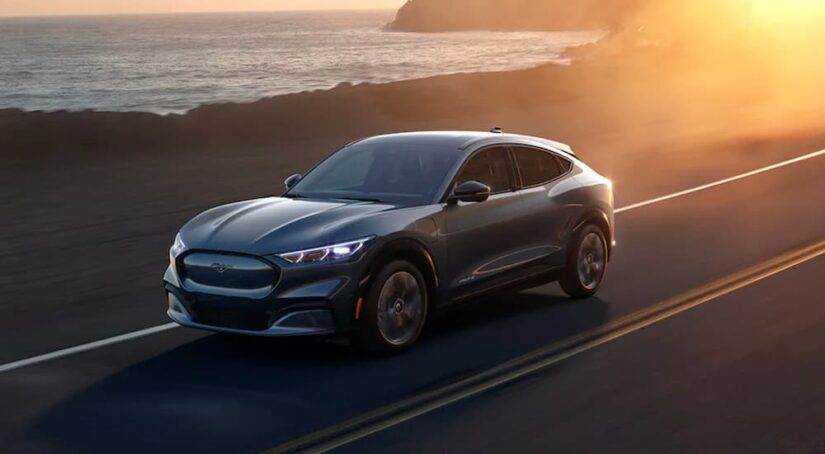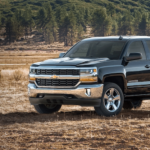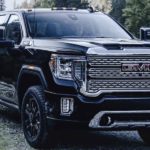“Carbon neutral” is a phrase we’ve been hearing a lot lately, but what is it? In a nutshell, carbon neutrality is balancing the carbon emitted by a group or individual with actions taken to absorb the same amount of carbon from the environment by said group or individual. This usually takes the form of minimizing carbon emissions while investing in offsetting the carbon that is emitted into the atmosphere.
We’ve seen a big push towards carbon neutrality from major corporations lately, and perhaps none have caught public attention more than those of the automotive industry. Harmful emissions have long been the environmental price we pay to get around in our four-wheeled counterparts, but this fact is quickly changing. Ford, Toyota, Honda, Subaru, Volkswagen, Mazda, Nissan, and Mitsubishi have all pledged to be carbon neutral by 2050. None of them will be able to achieve this target without launching new EVs—a lot of them. As of the time of writing, we are 27 years away from the 2050 deadline. So, how are these automakers doing?
Ford
As of 2023, Ford has three fully-electric passenger vehicles available to the public: the Mustang Mach-E, the E-Transit Van, and the F-150 Lightning. What’s exciting about Ford’s current electric lineup is the implantation of electric driving in historically emission-heavy vehicles. Muscle cars, pickups, and cargo vans are some of the worst offenders as far as the environment is concerned, and Ford is proving this doesn’t have to be the case. Electric vehicles aren’t just for green commuting anymore. They can tow, haul, and exhilarate, too.
On top of these EVs, Ford has several options for hybrid and plug-in hybrid vehicles. They’re not free of emissions, but they get far better gas mileage than vehicles running on gasoline alone. We can surely expect to see more EVs from Ford in the coming years, and they’ve already announced plans to develop a midsize sedan that’s fully electric.
Toyota
As one of the pioneers of hybrid technology, Toyota’s current progress towards a fleet that’s more electric is somewhat surprising. They’ve got just one EV, and it debuted for the 2023 model year. It’s the bZ4X, an SUV. For their part, Toyota does offer plenty of hybrids and plug-in hybrids, and they have a fuel cell vehicle in the form of the Mirai, which is a zero-emissions vehicle. Toyota has promised to launch five new EVs in European markets by 2026, but is this enough to get them on track to carbon neutrality by 2050? Time will tell where Toyota will land in the race toward an electric future.
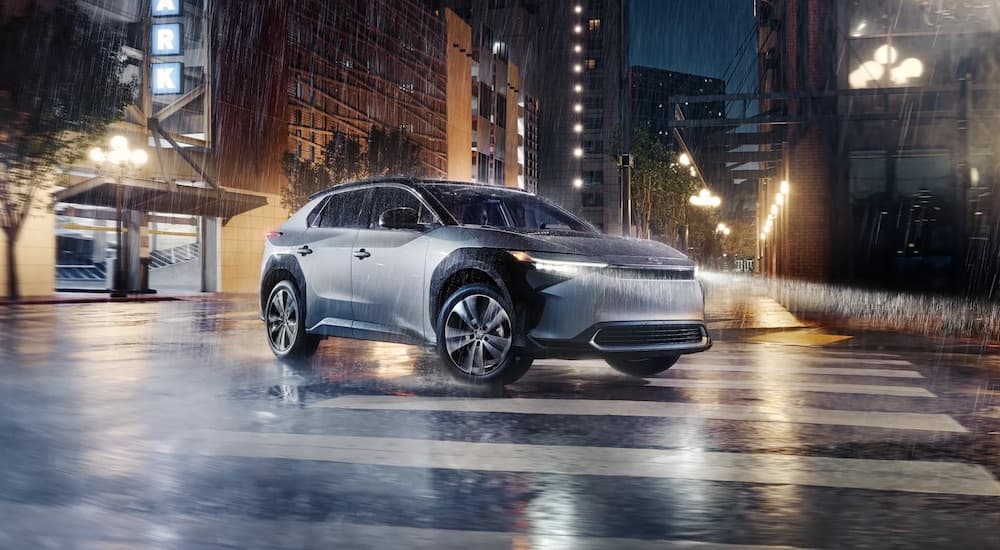
Honda
Honda is another automaker whose efforts toward a sustainable future have been…confusing. They’re known for the efficiency of their vehicles and once spearheaded efforts towards new, cleaner vehicles. Today, they’re lagging. There are no EVs that a buyer could purchase in the United States in 2023 unless you’re getting a used Honda Clarity EV which was discontinued after the 2019 model year. Honda has unveiled the Prologue, an all-electric SUV set to debut for the 2024 model year. Hopefully, the Prologue is just the tip of the iceberg for the future of Honda’s EV efforts.
Subaru
Subaru has surely benefitted from a nature-friendly reputation that hits with adventurers everywhere, but their explorations into the EV market have been timid at best. They do have one contender. The all-new 2023 Solterra looks much like the beloved Outback but runs on good, clean electricity. It also comes standard with all-wheel drive, which feels true to the Subaru brand. Subaru promises this is just the beginning for them, and if they’re to hit their goal of carbon neutrality by 2050, we’re expecting their word to be good.
Volkswagen
Volkswagen wins the award for cutest entry in the EV segment, thanks to their charmingly unique ID. Buzz. Modeled after Volkswagen’s iconic Type 2 Van of the mid-20th century, the ID. Buzz is an electrified version of the United States’ once-favorite family van. It’s currently slated to go on sale in the United States in 2024. Volkswagen also has the ID.4, a crossover EV that debuted in 2021. With up to 275 miles of driving range, Volkswagen is off to a competitive start in the EV realm. They’ve also confirmed plans to release ten new EVs to their ID line by the end of 2026, including a hatchback, SUV, and sedan.
Mazda
Mazda has announced the debut of a single EV for 2023, and it’s just as suave as the other crossovers in their lineup. The MX-30 may look the part, but with a range of only 100 miles, it’s unlikely that this vehicle will have a lot of pull with drivers. On the bright side, Mazda has designed the MX-30s interior with sustainability in mind, using materials like cork and recycled threads. Their holistic approach to carbon neutrality may be off to a slow start, but it is enough to breed some excitement for what may come next from this automaker.
Nissan
Nissan has a couple of EV offerings, one that is sure to sound familiar and one that you may have yet to get acquainted with. The Nissan LEAF debuted for the 2010 model year and continues to offer an affordable, emissions-free driving experience in 2023. It’s currently in its second generation and gets up to 215 miles of range with an extended battery pack. The other EV Nissan has to offer, called ARIYA, is new for this year. It’s a crossover that is far more premium than the LEAF, both in price and interior quality. Its range is improved upon, too, maxing out at 304 miles per charge.
Mitsubishi
Mitsubishi’s auto lineup is significantly smaller than the other automakers on this list, and as such, its EV lineup is smaller, too…as in nonexistent. Mitsubishi does have one plug-in hybrid vehicle, a version of the Outlander. Currently, they’re slated to release their first EV sometime in the next few years. It may seem like they’re well off projected carbon neutrality goals, but with them having such a small lineup, it should be considerably less involved for them to convert to selling majority electric vehicles.
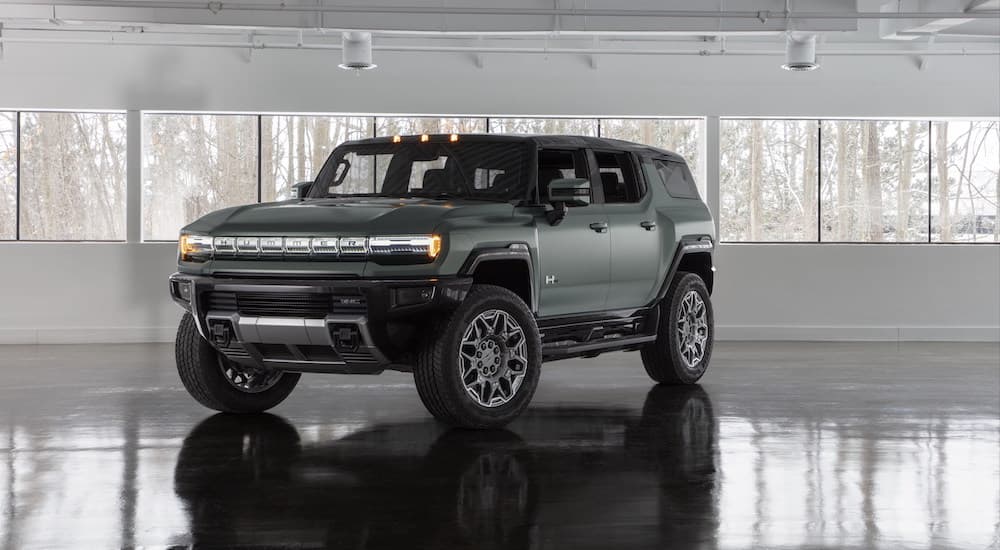
*Bonus* GM
GM has not pledged to be carbon neutral by 2050; they’ve created a bolder timeline for themselves, hoping to achieve what the other automakers on this list are going for a full decade earlier. As part of that plan, GM has also announced they would sell only EVs by 2035, so long as there’s demand for it. Their aggressive timeline is matched by their efforts. GM has already produced several EVs, including the HUMMER EV, Chevy Bolt EV and Bolt EUV, and Cadillac LYRIQ. They’re not slowing down, either, with vehicles like the Silverado EV, Blazer EV, and Equinox EV coming soon.
The Race Is On
With public awareness of the dangers of climate change growing, there has never been more pressure on the automotive industry to create products that enable customers to travel with less damage being done to our environment. That competition is a good thing for us, as reasonable pricing is often a result of companies trying to keep their product relevant. Quality and diversity of options are other products of the competition, so we can likely look forward to a lot more choices for EVs in the near future.
